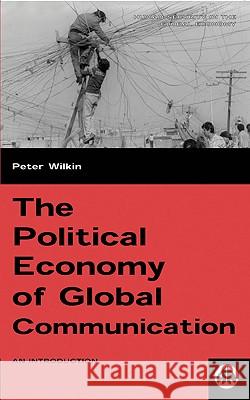The Political Economy of Global Communication: An Introduction » książka
The Political Economy of Global Communication: An Introduction
ISBN-13: 9780745314013 / Angielski / Miękka / 2001 / 176 str.
Recent debates surrounding human security have focused on the satisfaction of human needs as the vital goal for global development. Peter Wilkin highlights the limitations of this view and argues that unless we incorporate an account of human autonomy into human security then the concept is flawed. He reveals how human security is a concern with social relations that connect people in local, national and global networks of power, structured through capitalism and hierarchical inter-state systems. Autonomy, as an aspect of human security, depends upon the ability of citizens to gain information about the processes that shape their lives. In this respect autonomy and communication are inherently linked and are prerequisites for the establishment of meaningful democratic systems. To what extent do developments in global communication enhance or undermine autonomy? As the world's media companies continue to merge, we are moving towards an ever more commercially driven system of global information. Wilkin argues that private ownership provides an increasingly powerful obstacle to human autonomy, and that the neo-liberal institutional and policy framework - now a global tendency - raises major problems for the attainment of human security. At the same time it has provided the ideological justification for the extension of private power into ever wider areas of public life. Changes in global communication reflect wider tendencies to enhance the power of global elites at the expense of working people and the author illustrates how and why these changes have taken place and the forms of opposition that have arisen in response to them.











